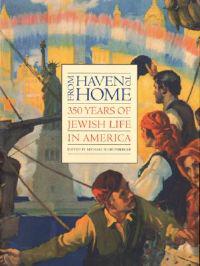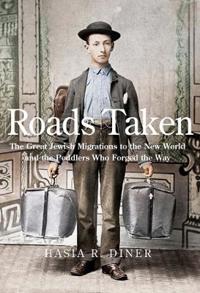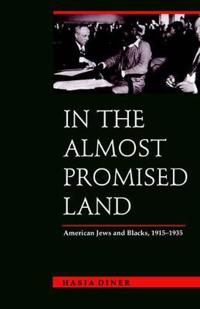From Haven to Home: 350 Years of Jewish Life in America (Inbunden)
avMichael W. Grunberger, Hasia Diner, Leonard Dinnerstein
ISBN: 9780807615379 - UTGIVEN: 2004-09Roads Taken (Inbunden)
avHasia R. Diner
ISBN: 9780300178647 - UTGIVEN: 2014-12Between the late 1700s and the 1920s, nearly one-third of the world's Jews emigrated to new lands. Crossing borders and often oceans, they followed paths paved by intrepid peddlers who preceded them. This book is the first to tell the remarkable story of the Jewish men who put packs on their backs a[...]
In the Almost Promised Land (Pocket)
avHasia R. Diner
ISBN: 9780801850653 - UTGIVEN: 1995-07Seeking the reasons behind Jewish altruism toward African-Americans, Hasia Diner shows how - in the wake of the Leo Frank trial and lynching in Atlanta - Jews came to see that their relative prosperity was no protection against the same social forces that threatened blacks. It thus became in the Jew[...]
1929 (Häftad)
avHasia R. Diner
ISBN: 9780814720219 - UTGIVEN: 2013-09The year 1929 represents a major turning point in interwar Jewish society, proving to be a year when Jews, regardless of where they lived, saw themselves affected by developments that took place around the world, as the crises endured by other Jews became part of the transnational Jewish consciousne[...]
We Remember with Reverence and Love (Häftad)
avHasia R. Diner
ISBN: 9780814721223 - UTGIVEN: 2010-10It has become an accepted truth: after World War II, American Jews chose to be silent about the mass murder of millions of their European brothers and sisters at the hands of the Nazis. In this compelling work, Hasia R. Diner shows the assumption of silence to be categorically false. Uncovering a ri[...]









